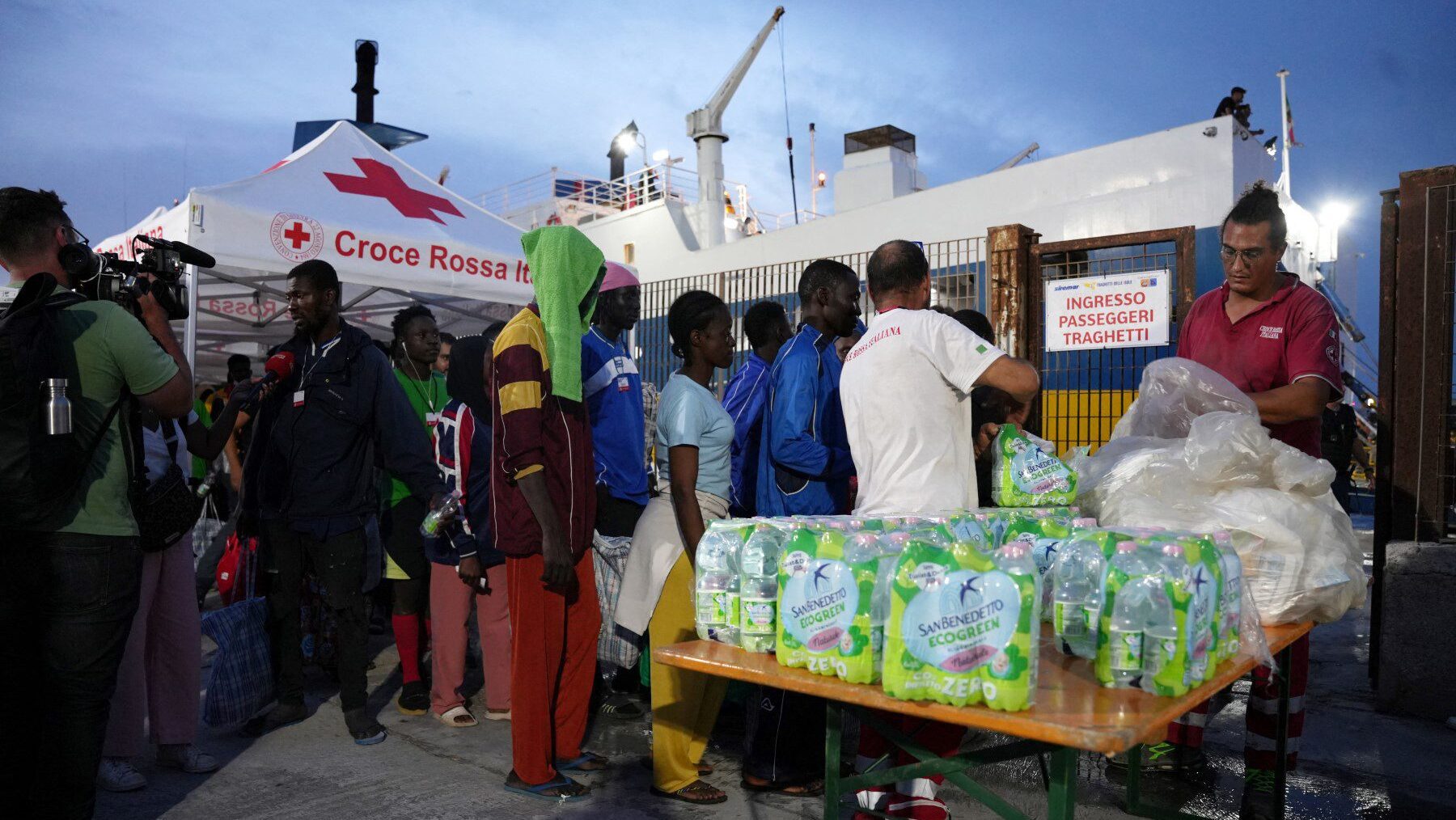
Members of the Italian Red Cross distribute bottles of water and food to migrants before they board a ship to be transported to other cities, on the Italian island of Lampedusa, on September 18, 2023.
Photo: Zakaria ABDELKAFI / AFP
Italy has seen a dramatic drop in the number of migrants arriving by sea in 2024, reflecting the success of Prime Minister Giorgia Meloni’s government’s anti-migration policies. According to the latest data, arrivals in September 2024 were down significantly, with 7,685 migrants reaching Italian shores compared to 25,673 in the same month in 2023. This marks the 12th consecutive month of declining migration numbers.
Il Giornale reports that the most notable decrease comes from Tunisia, which has been a key departure point for migrants attempting to cross the Mediterranean. In 2023, more than 91,000 migrants arrived in Italy from the North African country, but in 2024, that number plummeted by 82.5%, down to just 15,931.
Salvo Sallemi, a senator from Meloni’s Fratelli d’Italia party, said:
More than 82% fewer landings from Tunisia and declining arrivals from all routes, data that prove Fratelli d’Italia right and those who hoped for the failure of the new approach … wrong. The dark years of the Left’s uncontrolled reception are over.
Migration from other routes has also declined. Arrivals from Libya, which historically has been the largest departure point for migrants heading to Italy, fell by 17.8%, with just over 30,000 migrants landing in Italy from Libyan shores in 2024. Most of these migrants are from Bangladesh, with Syrians, Tunisians, and Egyptians as the other major national groups. Overall, irregular migration to Italy has dropped nearly 60% from the previous year.
Italy’s success in reducing migrant arrivals is thanks to a two-pronged strategy of deterrence and diplomacy. On the deterrence side, the Meloni government has reformed the country’s immigration system by shortening the asylum procedure and implementing stricter verification protocols. Longer detention periods for failed asylum seekers have been introduced, and Italy has also increased voluntary and involuntary returns to such countries as Tunisia and Libya.
Diplomatically, Italy has bolstered its relationships with key transit and origin countries in Africa, particularly Tunisia. In exchange for aid and investment in infrastructure and energy, these countries have committed to helping combat human trafficking networks. Tunisia, which has received support from both Italy and the European Union, has been a major focus of this diplomatic approach, and the results are clear in the dramatic reduction in migrant departures from its shores.
However, the problem of illegal migration into Europe has not disappeared. As Italy tightens its borders, other countries in the Mediterranean, including Spain and Greece, have reported increases in migrant arrivals. Spain has seen a 155% increase in landings in 2024, while Greece experienced a surge of over 200%. While Italy has managed to curb migrant arrivals, the broader issue of illegal migration across the Mediterranean continues to challenge Europe.
